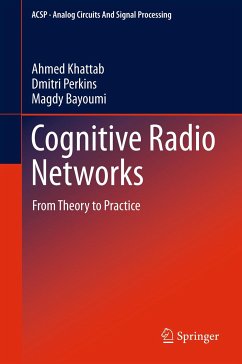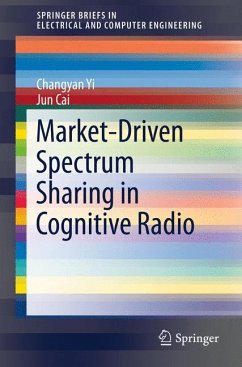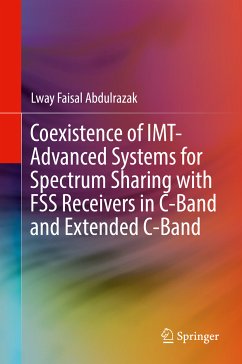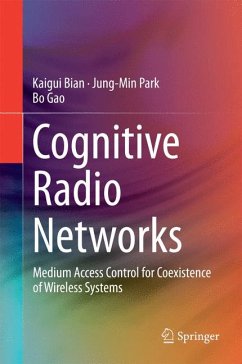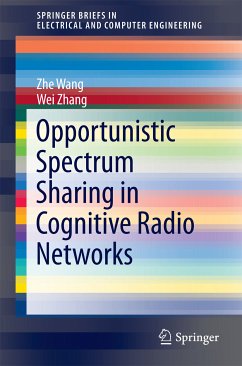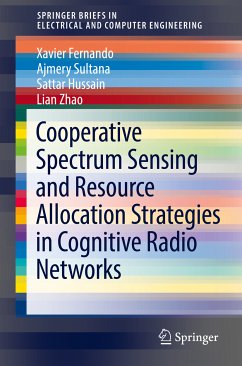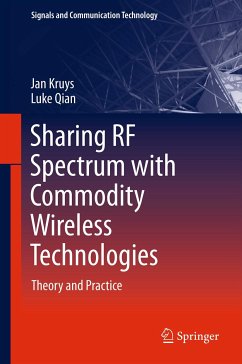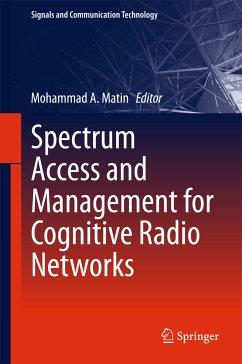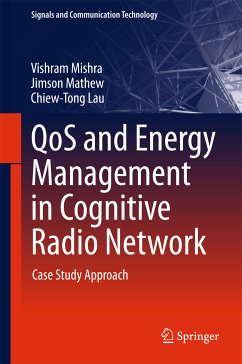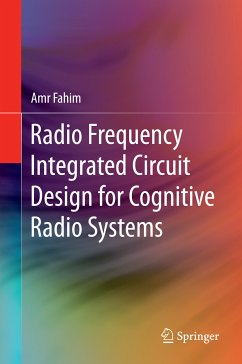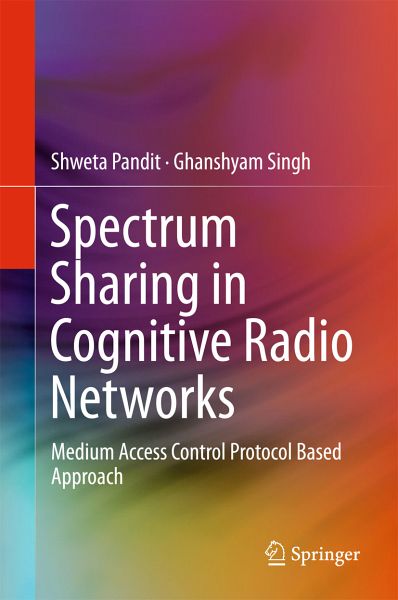
Spectrum Sharing in Cognitive Radio Networks (eBook, PDF)
Medium Access Control Protocol Based Approach
Versandkostenfrei!
Sofort per Download lieferbar
72,95 €
inkl. MwSt.
Weitere Ausgaben:

PAYBACK Punkte
36 °P sammeln!
This book discusses the use of the spectrum sharing techniques in cognitive radio technology, in order to address the problem of spectrum scarcity for future wireless communications. The authors describe a cognitive radio medium access control (MAC) protocol, with which throughput maximization has been achieved. The discussion also includes use of this MAC protocol for imperfect sensing scenarios and its effect on the performance of cognitive radio systems. The authors also discuss how energy efficiency has been maximized in this system, by applying a simple algorithm for optimizing the transm...
This book discusses the use of the spectrum sharing techniques in cognitive radio technology, in order to address the problem of spectrum scarcity for future wireless communications. The authors describe a cognitive radio medium access control (MAC) protocol, with which throughput maximization has been achieved. The discussion also includes use of this MAC protocol for imperfect sensing scenarios and its effect on the performance of cognitive radio systems. The authors also discuss how energy efficiency has been maximized in this system, by applying a simple algorithm for optimizing the transmit power of the cognitive user. The study about the channel fading in the cognitive user and licensed user and power adaption policy in this scenario under peak transmit power and interference power constraint is also present in this book.
Dieser Download kann aus rechtlichen Gründen nur mit Rechnungsadresse in A, B, BG, CY, CZ, D, DK, EW, E, FIN, F, GR, HR, H, IRL, I, LT, L, LR, M, NL, PL, P, R, S, SLO, SK ausgeliefert werden.



